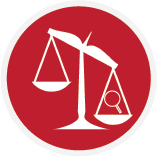Issues of energy production and consumption, and the associated environmental impacts, top many lists of global challenges for the 21st century. Engineering leadership is key to the development and implementation of sustainable energy technologies to address these challenges.
The emphasis in Sustainable Energy is sponsored by Climate Positive Energy and was developed to expose engineering graduate students to a variety of energy issues and technologies. Students who complete this emphasis will develop a better understanding of the limitations, challenges and opportunities that face contemporary energy systems, touching on both established and emerging technologies and their points of intersection.
Students who complete the requirements of the emphasis will have it notated on their transcript.
Program Eligiblity
Graduate students registered in the following MEng programs can specialize in the Sustainable Energy emphasis:
- University of Toronto Institute for Aerospace Studies (UTIAS)
- Department of Chemical Engineering & Applied Chemistry (ChemE)
- Department of Civil & Mineral Engineering (CivMin)
- Department of Materials Science & Engineering (MSE)
- Department of Mechanical & Industrial Engineering (MIE)
- The Edward S. Rogers Sr. Department of Electrical & Computer Engineering (ECE)
You cannot apply to the emphasis directly as a standalone program. If you are a prospective student, you can learn more about applying to our MEng programs here.
Careers
Graduates who complete the Sustainable Energy emphasis are employed by companies across a range of industries including:
- construction,
- consulting,
- environmental services,
- manufacturing,
- mining
and more.
Some of the most common first roles our graduates secure are:
- Energy auditor
- Energy consultant
- Process engineer
- Renewable energy analyst
- Sustainability analyst
- Wind turbine engineer
Emphasis Requirements
MEng students can earn an Emphasis in Sustainable Energy by completing four courses from either of the lists below, including at least one core course.
MASc and PhD students must complete at least three courses from either of the lists below and must complete a thesis towards their degree on a topic related to sustainable energy.
MASc and PhD students are asked to contact info@cpe.utoronto.ca.
All current students interested in this emphasis are asked to register with Climate Positive Energy, by emailing info@cpe.utoronto.ca. at the beginning of their studies, to receive information about energy-related activities and opportunities on campus. CPE also administers a number of awards and scholarships for which students may be eligible.
Some courses may satisfy the requirements of multiple MEng emphases. Students may double-count a maximum of one course towards the requirements of any two emphases.
Students cannot earn more than two emphases.
Core Courses
[*] indicates a course that is likely accessible to students of different engineering backgrounds.
Courses without the [*] may be open to students from outside the department offering the course but are more discipline specific.
- APS1032H: Introduction to Energy Project Management*
- MIE515H: Alternative Energy Systems *
- MIE1120H: Current Energy Infrastructure and Resources *
Elective Courses
- AER507H: Introduction to Fusion Energy *
- AER1304H: Fundamentals of Combustion *
- AER1315H: Sustainable Aviation
- AER1415H: Optimization Concepts and Applications
- CHE568H: Nuclear Engineering *
- CHE1053H: Electrochemistry *
- CHE1118H: Industrial Catalysis
- CHE1123H: Liquid Biofuels *
- CHE1142H: Applied Chemical Thermodynamics *
- CHE1143H: Transport Phenomena *
- CIV575H: Studies in Building Science
- CIV576H: Sustainable Buildings *
- CIV577H: Infrastructure for Sustainable Cities *
- CIV1303H: Water Resources Systems Modelling *
- CIV1307H: Life Cycle Assessment and Sustainability of Engineering Activities *
- ECE533H: Power Electronics
- ECE1030H: Space Vector Theory and Control
- ECE1055H: Dynamics of HVdc/ac Transmission Systems
- ECE1057H: Static Power Converters I – Principles of Operation and Applications
- ECE1059H: Special Topics in Energy Systems: Fundamentals of Power-Flow and Modeling in of Electric Power
- ECE1085H: Power System Optimization
- ECE1086H: Power Management for PV Systems
- ECE1092H: Smart Grid Case Studies
- ECE1094H: Mathematical Methods in Power Systems
- ECE1476H: Solar Cells and LEDs
- MIE516H: Combustion and Fuels *
- MIE517H: Fuel Cell Systems *
- MIE1128H: Materials for Clean Energy Technologies *
- MIE1129H: Nuclear Engineering I *
- MIE1130H: Nuclear Engineering II *
- MIE1132H: Heat Exchanger Design (added as of Fall 2023)
- MIE1241H: Energy Management
- MIE1715H: Life Cycle Engineering *
- MIE1240H: Wind Power
- MSE1023H: Special Topics in Materials Science II: Electrochemical Energy Storage – Materials & Systems *
- MSE1028H: Advanced Materials Science: Thin-Film Materials & Processing
- MSE1058HS: Nanotechnology in Alternate Energy Systems *
Questions?
If you have questions about the Sustainable Energy emphasis, please contact: info@cpe.utoronto.ca
For more information, visit the MEng emphases FAQ page »











